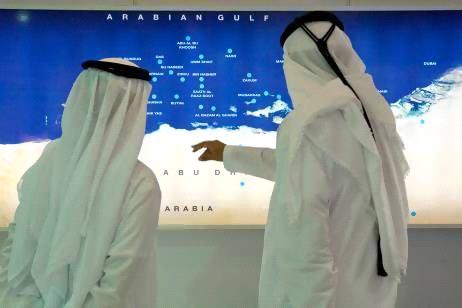Ammon News - DUBAI (The National) - It is not easy for International Oil Companies (IOCs) to decide what country is good for oil investments. Oil industry partnerships are long-term and capital intensive.
The amount of reserves alone is not enough to judge whether a country is better than another; nor whether political stability alone is a good indicator of a country's attractiveness. Oil investment partnerships between IOCs and oil-rich countries are complicated, requiring an assessment of many eclectic factors.
Amount of reserves, geology certainty, political stability, infrastructure, sector governance and oil prices are crucial elements of oil investment assessments. Combining the aforementioned factors with the capital-intensive and long-term nature of oil investment leads to a high level of unpredictability. The main objective of IOCs in oil partnerships is a handsome return on investment. This is how they push their stock price up and keep their shareholders happy.
For IOCs, these factors are inevitable risks, which have to be well managed in order to ensure a profitable return. In addition, the host governments can do a great deal to help IOCs to manage these risks and rest assured about their investment return; the UAE Government is a good example of that. This is why the UAE is more attractive than many oil-rich countries when it comes to oil partnerships.
Different oil-rich governments have different policies for industry participation. Some categorise governments as fully open, partially open or fully closed to IOCs' participation. Since the first concession agreement was signed in 1939, the UAE has always been open to outside participation in its hydrocarbons industry.
In the cyclical sentiment of resource nationalisation seen in different parts of the world, many IOCs have found themselves locked out of lucrative giant oilfields. However, the UAE is one of a handful of host governments which have believed and still believe that partnerships with IOCs are mutually beneficial and they should continue.
Many countries are hard-pressed to overproduce their resources at a suboptimal rate because they need oil revenues to fill the current account and fiscal gaps. This is not the case for the UAE; the Government is in a strong financial situation thanks to the current account and fiscal surpluses.
Many energy policy experts have demonstrated that there is a strong link between a country's dependency on hydrocarbons revenues and resource nationalisation; the higher the dependency the higher the risk of nationalisation. The UAE's dependency on hydrocarbons revenues is ever decreasing. According to the IMF, the UAE's hydrocarbon export revenues accounted for an average of 70 per cent of total export revenues in the 1990-99 period. However, this figure went down to an average of 55 per cent in the 2000-10 period. The IMF explains: "As the UAE developed into a major services hub in the Middle East, its dependency on oil exports declined markedly."
Moreover, the country's well-developed infrastructure, public services and strong economy allow it to focus on commercial objectives. There is no mix between commercial and non-commercial objectives.
Any obligations IOCs are requested to fulfil in terms of public services (beyond the industry norms) are clearly mentioned in decrees, regulations or bilateral agreements. Unlike the UAE, many oil-rich countries' joint ventures are overburdened with non-commercial objectives, which adversely affect their bottom line.
Many governance experts consider the UAE oil industry among the best governed. They attribute this to factors such as clarity of vision, centralised decision-making, political insulation and political stability. These factors make the investment decision-making process clear and nimble.
Without these factors, IOCs' investments can be stranded in the power wrangles between different organisations involved in managing the oil industry. This happens especially when there is no clarity of vision or roles and responsibilities. Or IOCs can be pulled into the local politics or civil unrest because they are doing business in a politically tumultuous country. This eventually leads to either higher costs or abandonment of assets as has been seen recently in some countries in Africa and South America.
Needless to say that in the UAE there are giant fields with billions of barrels of oil reserves. At the current production rate, the reserves can last for around 100 years. According to BP Statistical Review 2013, the UAE has 6 per cent of the world's total reserves. The reserves of an average size oilfield are more than those in the whole of Angola, Ecuador, Algeria or even Brazil.
The reserves size does not tell the complete story. The UAE's oil is easy and cheap to produce. Nowadays, it is not easy for IOCs to find oil of this quality. Most giant easy oilfields are ageing and the cost of maintaining their production is increasing. This is one reason why the cost of marginal barrel is going up for many IOCs. The UAE's oil attractiveness causes many IOCs to put forward their best offers to get their hands on a share of the country's reserves.
